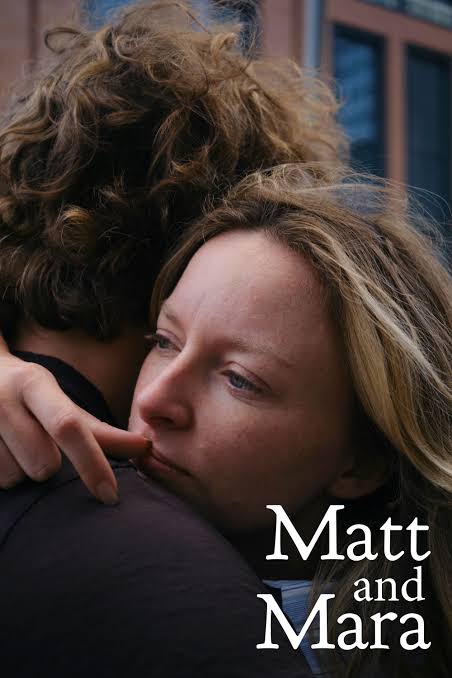All Good Things Christian Review

Let’s get something straight right off the bat: All Good Things isn’t the kind of movie you walk away from feeling good about humanity. It’s dark, heavy, and unsettling in ways that make you wonder if you’re peering too far into the abyss. Inspired—if that’s the right word—by the infamous Robert Durst case, it takes you into the tangled mess of a privileged but deeply troubled life. And as much as you might want to root for someone to find redemption, the film doesn’t leave much room for hope.
This is one of those true-crime-inspired stories that raises as many ethical questions as it answers narrative ones. It pulls you in with its eerie atmosphere and strong performances but leaves you grappling with some big questions: What happens when filmmakers blur the line between fact and fiction? Is it right to make entertainment out of real-life tragedies? And why do we, as viewers, find ourselves so captivated by the worst parts of human nature?
David Marks: A Portrait of Decay
At the center of all this is David Marks, played by Ryan Gosling in a performance that’s equal parts chilling and hypnotic. David is a man who seems to have been broken long before the movie even begins. His father, Sanford Marks (a thinly veiled version of Robert Durst’s real-life father), looms large in his life—controlling, demanding, and unrelenting. You can see how David’s life might have taken a different course under different circumstances. Maybe a more nurturing family environment would have kept him from descending into darkness. But as the film unfolds, it becomes clear that this story is about more than just bad parenting.
What makes David such a compelling—and disturbing—character is the way Gosling plays him. There’s a quietness to his demeanor that makes the moments of violence and manipulation hit that much harder. One second, he’s soft-spoken and almost likable; the next, he’s chillingly cold. It’s a portrait of a man who has completely unraveled, but the process is so subtle and insidious that you almost don’t notice until it’s too late.
As Christians, watching David’s descent is a stark reminder of what happens when sin goes unchecked. His lies, manipulations, and violent tendencies aren’t just character flaws—they’re symptoms of a deeper spiritual sickness. It’s hard not to think about how different his life could have been if grace and truth had found a foothold in his heart before it all went so horribly wrong.
True Crime or Exploitation?
Here’s where things get murky: All Good Things isn’t just a fictional thriller. It’s a thinly veiled retelling of the Robert Durst case, complete with speculative scenarios that may or may not be true. The names are changed, and the film claims to be “inspired” by real events, but let’s not kid ourselves—it’s clear that this is Durst’s story with just enough tweaks to avoid lawsuits.
This raises some serious ethical questions. On one hand, true crime stories like this can be fascinating. They give us a glimpse into the darker corners of human nature and make us wrestle with questions about justice, morality, and the human capacity for evil. On the other hand, there’s something unsettling about taking a real-life tragedy—especially one with unresolved questions—and turning it into entertainment.
From a Christian perspective, this feels particularly thorny. We’re called to seek truth, and yet, All Good Things thrives on ambiguity. It mixes fact and fiction in a way that can feel manipulative, leaving viewers unsure of what’s real and what’s just cinematic flourish. That ambiguity might make for compelling storytelling, but it also risks trivializing the very real pain and loss experienced by the people involved in the Durst case.
Atmosphere and Unease
If there’s one thing director Andrew Jarecki gets right, it’s the atmosphere. The film has a sense of foreboding that hangs over every scene, like a storm cloud that never quite breaks. From the opulent but suffocating world of the Marks family to the eerie isolation of the countryside, every setting feels like a reflection of David’s unraveling psyche.
This is not a movie that gives you a lot of emotional breathing room. It’s tense, disorienting, and often uncomfortable to watch. The pacing can be a bit uneven, and some of the speculative elements feel over-the-top, but the overall mood is undeniably effective.
For Christians, this atmosphere of unease can be both a strength and a stumbling block. On one hand, it’s a powerful reminder of the brokenness of a world without God. On the other hand, it can be overwhelming, leaving you feeling weighed down by the darkness instead of inspired to bring light into it.
Redemption Nowhere in Sight
One of the most glaring absences in All Good Things is any sense of redemption. There’s no moment of clarity for David, no attempt to seek forgiveness or make things right. The film ends on a note of ambiguity, leaving viewers with more questions than answers.
From a narrative standpoint, this might make sense. Real life is messy, and not every story has a neat, happy ending. But from a Christian perspective, it’s hard not to feel a little frustrated. We believe in a God who can redeem even the most broken lives, who can bring light into the darkest places. That hope is entirely absent in this film, and its absence is deeply felt.
That’s not to say every movie needs to be overtly Christian or offer a tidy resolution. But when a story dives so deeply into the darkness without offering any hint of hope, it risks leaving viewers feeling hopeless, too.
Final Thoughts: A Mixed Bag
So, what do we make of All Good Things? It’s a well-acted, atmospheric, and undeniably engrossing film. Ryan Gosling’s performance is haunting, and the story will keep you thinking long after the credits roll. But it’s also a movie that thrives on ambiguity, leans heavily into darkness, and raises ethical questions about the way we tell true-crime stories.
For Christian viewers, this is a film that demands discernment. It’s not an uplifting watch, and it doesn’t offer much in the way of moral clarity. But it does provide a sobering look at the consequences of unchecked sin and the emptiness of a life lived without hope.
Would I recommend it? Maybe—but only if you’re prepared to sit with the discomfort it brings. All Good Things isn’t a movie that will leave you feeling inspired or hopeful. But it might just remind you why the hope we have in Christ is so essential in a world as broken as this one.
Rating: 6.5/10





